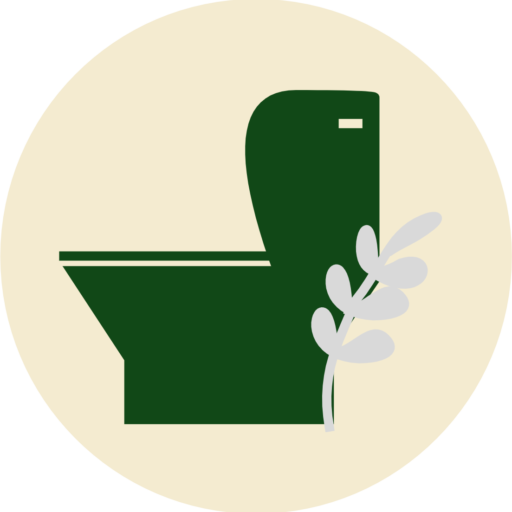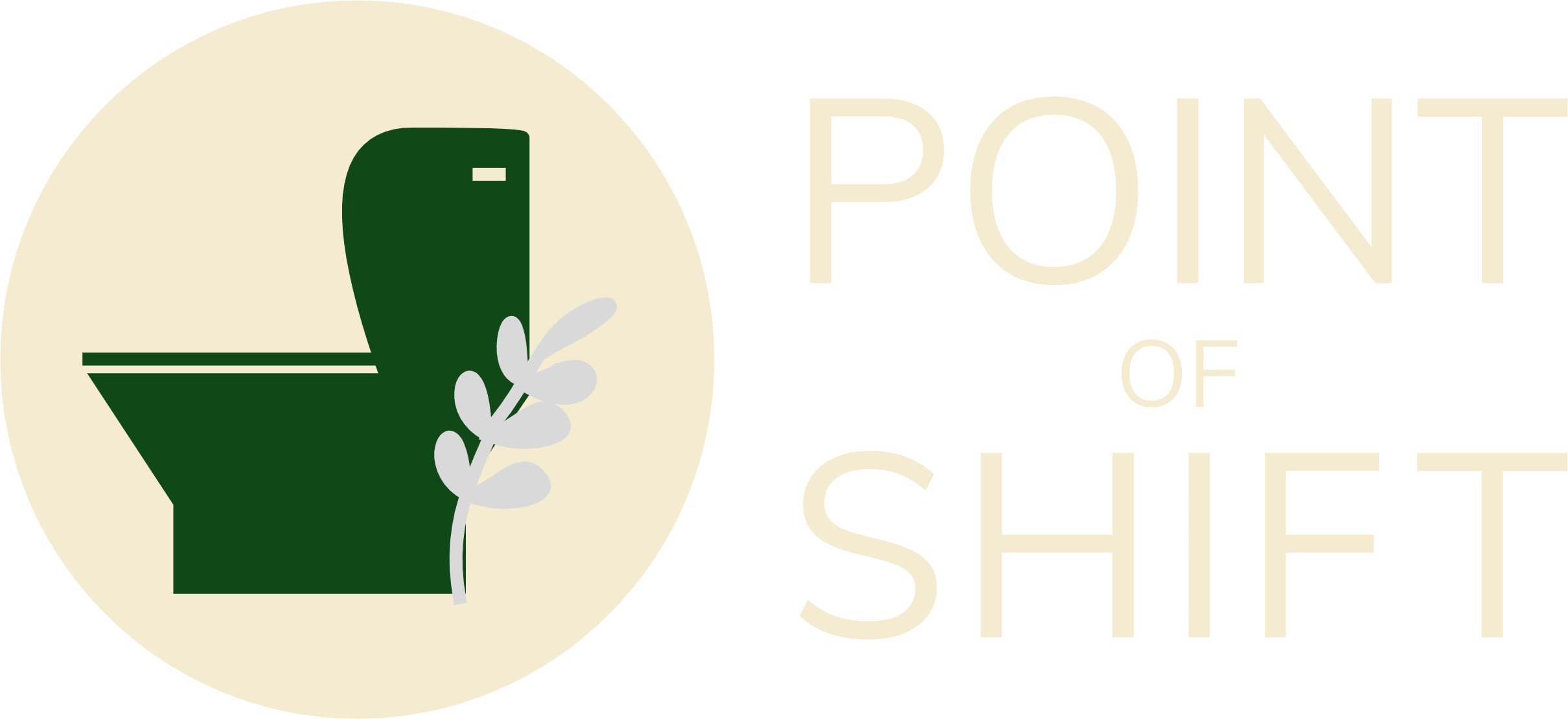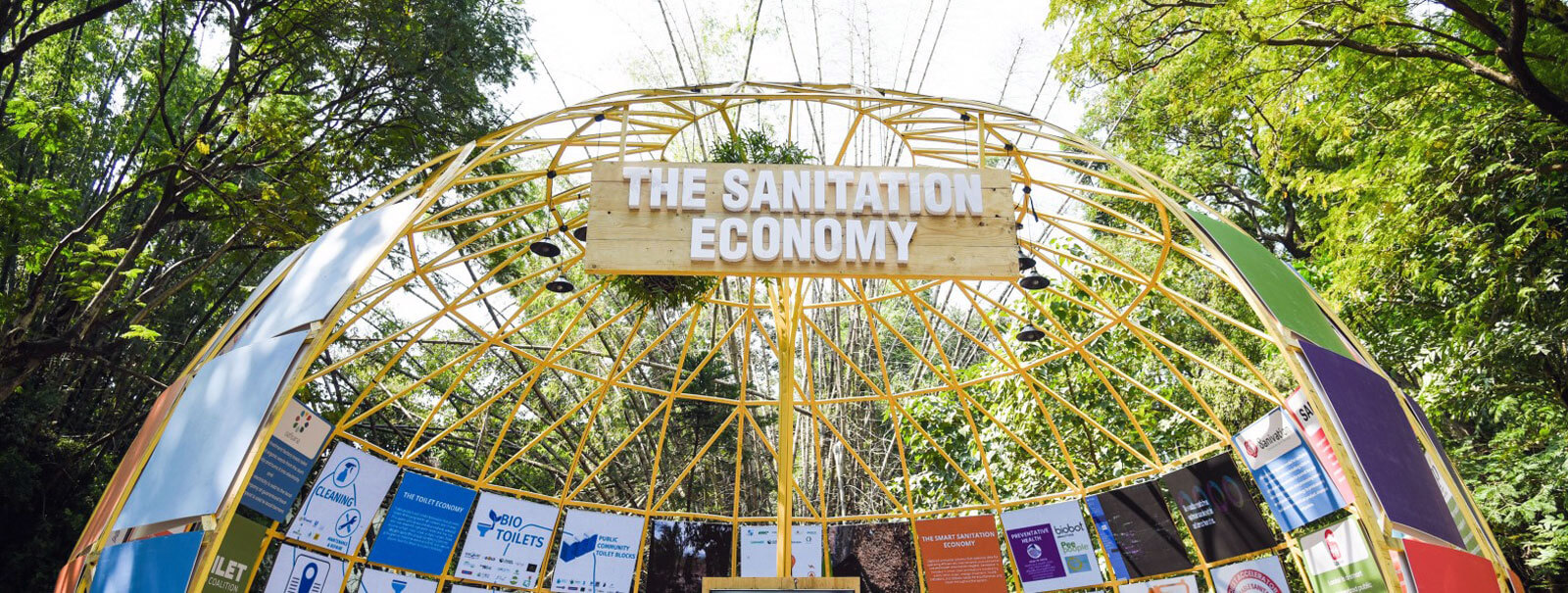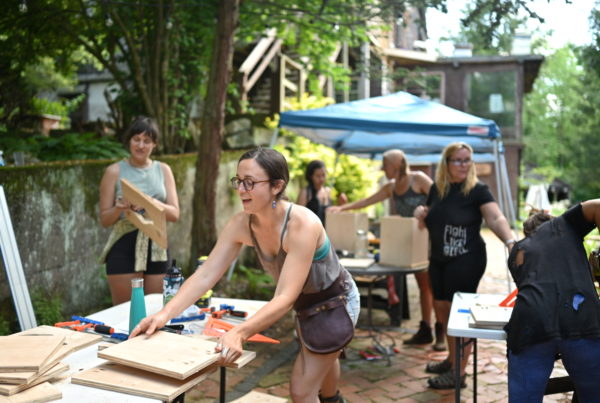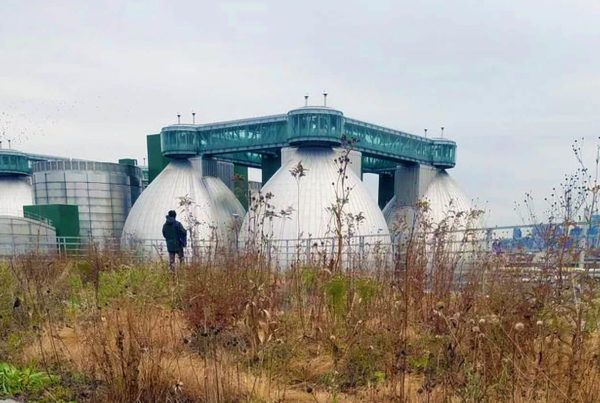As India enters its sixth week of lockdown, I have been fortunate to be tucked away in a remote corner of the beach town Goa. As Associate Director for the Toilet Board Coalition (TBC), my colleagues and I are used to working remotely as we span three continents and four timezones. Our works centres on communicating and validating sanitation’s role, specifically the Sanitation Economy, in strengthening the resiliency of our communities, cities, businesses and environment. So yes, I get paid to talk toilets.
With COVID-19, it feels that systems thinking is having a well-deserved time in the limelight. Systems expert, Donella Meadows, describes a system as “an interconnected set of elements that are organised in a way that achieves something”[1]. Our society is composed of multi-layer systems (i.e. transportation grids, energy networks and information flows) that we have come to expect to be operating 24/7. COVID-19, however, has illuminated what many scientists have already predicted – that our dependency on this multi-network society is fragile. If one link within the system is compromised, it adds immense stress to the other systems causing some to falter and others to fail [2].
How do we build more resilient, sustainable systems and where do toilets come in?
Toilets, hygiene and COVID-19, have been intrinsically linked from the start. The sustainable and circular systems we design post-COVID-19 will need to put higher emphasis on access to clean spaces, water and hygienic facilities. Hygiene and protection from disease are being rewritten as human rights. Implementing sanitation services as a business can further strengthen a community’s access to water and disease prevention systems while providing an economic return to support the system’s operating costs. The Toilet Board Coalition illustrates these sanitation business models through the sanitation economy.
The Sanitation Economy, a system of circular and smart sanitation, strengthens a community, city or business by providing renewable resources, in the form of energy, water, or nutrients as well as vital community health information. It is one of the few resources that grows with population (more people = more poop). Human excreta also contains important information about the health of a community (think of it like giving a stool sample to your doctor just by flushing your toilet).
Sanitation is not the only solution, but a key component to strengthening a business’s current operations by providing information on the health of a population and producing an additional resource in the form of energy, water or nutrients.
1. Hygiene and Sanitation Infrastructure
COVID – 19 has reinforced that proper hygiene is one of humankind’s best defences against disease. The World Bank and WHO have both stated that washing your hands is the best way to prevent spreading COVID-19. But to properly wash hands and disinfect surfaces, you need clean water. Currently, 2.2 billion people lack access to clean water, 2 million of those are Americans[3].
A majority of COVID relief in the WASH sector is focused on providing vulnerable populations with clean water and soap. Though this is extremely important, it is only a temporary band-aid. At a systems level, we cannot afford to miss the opportunity to channel resources to implement infrastructure and scale sustainable WASH businesses, rather than just handing out soap. Not having access to safe, adequate sanitation systems (preferably circular and smart systems – but we will get to that) is like only washing your left hand, but not your right. It means increased health risks, in cities and communities, that is exemplified during a pandemic. Sanitation and water infrastructure are two central components to a community’s or city’s ability to fight disease.
While there is still much to learn about the connection between COVID-19 and sanitation, there is an opportunity to use sensors to detect disease concentrations within sewer systems. Though COVID-19, like similar virus SARS, does not seem to spread through human waste, we can use sewage to track the presence of the virus more accurately than through clinical testing[4].
Several companies, such as BioBot, have already begun to track communities’ biomarkers through sewage providing information vital to more efficient, effective and proactive health initiatives. Wastewater-based epidemiology is a practice whose origins date back to 1854 and London’s cholera outbreak. This practice has also been used to combat outbreaks of polio and other infectious diseases.
There is still more to learn about COVID-19’s relation to sanitation. However, incorporating smart sanitation systems can provide city and health officials additional information on the prevalence of COVID-19 in their community, adding to testing results and information hospitals provide.
Smart sanitation strengthens a city, community or business by providing an additional source of public health data to make more informed decisions.
2. Sanitation is a Renewable Resource
Human waste, also known as Toilet Resources, contains valuable, useful nutrients that can be converted into compost, energy or water. Centuries ago, before the introduction of human-made chemicals and pathogens, humans returned their unused nutrients, or waste, to the soil. As our population grew and urban living emerged, open defecation created health problems for new societies. Systems were designed to collect and dispose of these resources, usually releasing the waste in surrounding water bodies. Today new circular sanitation systems combine the innovations of sanitation in the last 200 years, such as flush toilets and traditional sewer systems, with the age-old tradition that sanitation is a resource for the environment.
Building sanitation infrastructure is a crucial cornerstone of protecting our health by providing clean and hygienic spaces for everyone. But it is not enough to collect, treat and then release the treated water into surrounding water bodies. It’s a good start, but this process ignores the value in human waste and flushes it down the drain. Converting human waste into nutrients, energy, water or animal feed, not only treats the waste but provides communities with additional resources and an economic return on the cost of operating these systems. In a COVID-19 situation, in most communities, sanitation is rightly recognised as an essential service. These services could be even more essential by converting a waste produced every day into a resource (and for their public health monitoring purposes as outlined earlier). Sanitation entrepreneurs and cities are already implementing and scaling solutions that convert toilet resources into a sellable product, such as compost, water, energy and animal feed. Businesses are innovating on this age-old concept of reusing human waste. They are using the waste to create firewood-like logs, designing modular biogas treatment plants and using IoT to enhance the efficiency of the treatment process.
Circular sanitation strengthens a city, community or business by providing a sustainable, renewable resource close that increases as the population grows. Even in pandemics, everyone has a right to safely managed sanitation systems.
We will not see these changes overnight, but how can we utilise this pause in our systems to re-shift the current operating model to be more sustainable for the planet, resilient for businesses and healthier for communities. There are businesses already leading the way, reach out the Toilet Board Coalition to learn more about who is incorporating the Sanitation Economy in their models.
The TBC is hosting a webinar on May 21st 1:30 pm to 2:30 pm CET, “Scaling Through Your Supply Chain: Moving from Feasibility to Demonstrations”. This webinar will highlight TBC members that have implemented sanitation projects outside of their normal operations and discuss how more businesses can follow their lead! If you are interested in joining, please reach out to me at mcwilliams@toiletboard.org.
About the TBC
The Toilet Board Coalition since 2014, has focused on transforming sanitation by engaging the business sector and proving that sanitation as a business is good for the planet and the bottom line. This has taken many shapes across the years, starting with a sanitation entrepreneur accelerator program connecting start-ups to mentorship with large multinationals corporations. The TBC’s portfolio has grown to include working with diverse organisations, sectors and communities to implement the Sanitation Economy across sectors, industries and regions. The TBC has developed a framework to help members and businesses implement the Sanitation Economy, starting with a feasibility study and ending with replication of an initial trial. This framework has been used in the tea sector to scale the Sanitation Economy as best practice across the industry.
[2] https://www-nbcnews-com.cdn.ampproject.org/c/s/www.nbcnews.com/think/amp/ncna1169991
[3] https://www.unwater.org/water-facts/water-sanitation-and-hygiene/
[4] https://www.medrxiv.org/content/10.1101/2020.04.05.20051540v1
